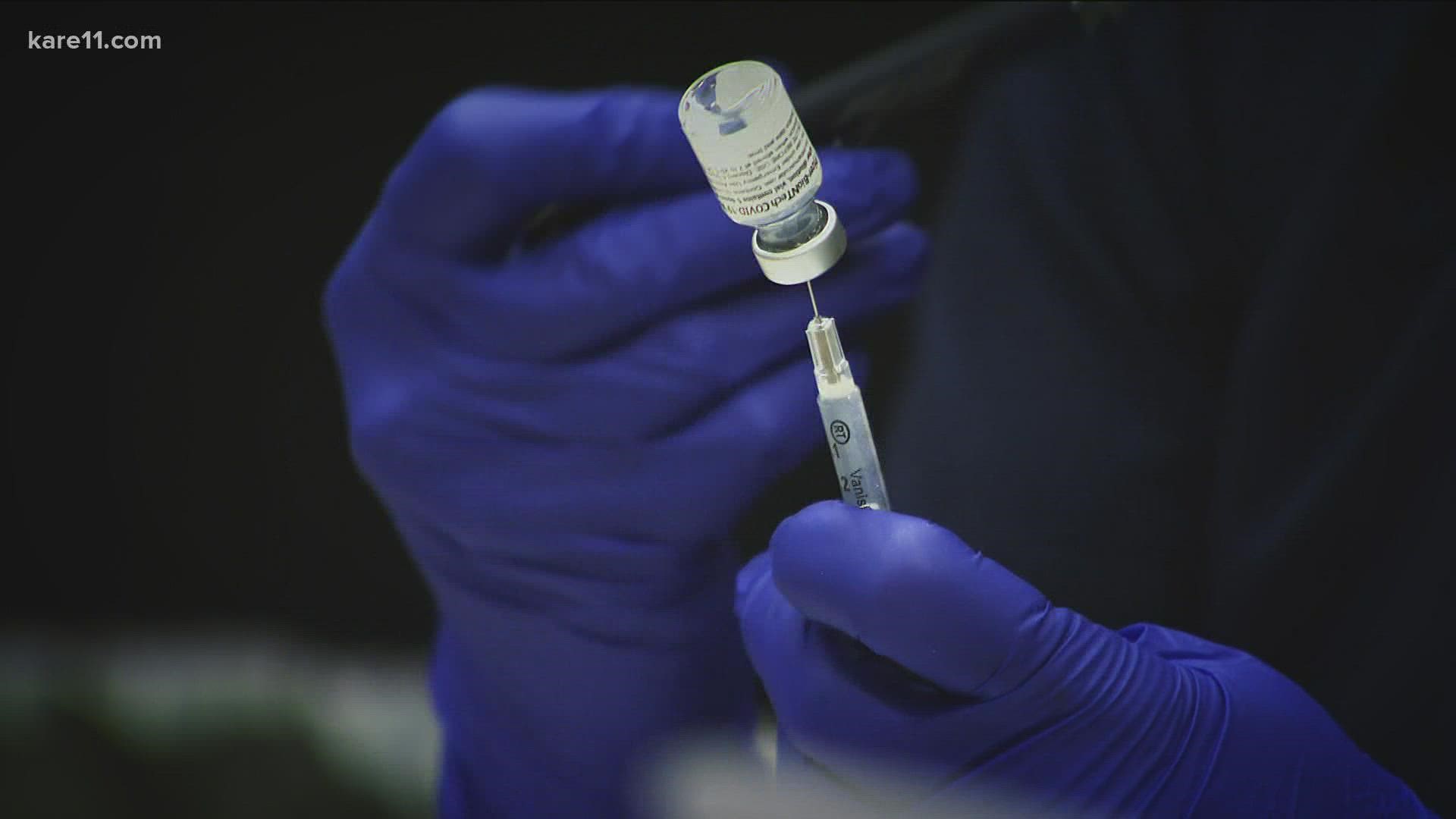MINNEAPOLIS, Minnesota — One month ago, U.S. regulators approved a third dose of the mRNA COVID-19 vaccines by Pfizer and Moderna for those who are immunocompromised.
"It does appear they get COVID worse and it does appear they do not respond to the vaccine as well," said Dr. Frank Rhame, an Allina Health infectious disease specialist at Abbott Northwestern Hospital.
According to the Centers for Disease Control and Prevention, immunocompromised people make up less than 3% of Americans but in small studies have made up about 40% of breakthrough cases requiring hospitalization.
Since Aug. 13, according to data from the Minnesota Department of Health (MDH), 28,213 third vaccine doses have been administered in the state.
Meanwhile, President Joe Biden announced in August plans to start delivering booster shots by Sept. 20 for all Americans, if approved by the U.S. Food and Drug Administration and CDC.
The president said it would apply to those who had received their second shot of Pfizer or Moderna at least eight months ago.
"I think that's optimistic. There is a process here and President Biden did acknowledge at the beginning that process would be held." Dr. Rhame said. "It's not going to happen in the next 10 days. I can guarantee that."
But Dr. Rhame said it is possible it could happen in the next month.
Dr. Anthony Fauci recently said while the U.S. was likely to start distributing Pfizer booster shots by next week, Moderna's could be delayed. Johnson & Johnson is also considering a booster shot.
According to the Associated Press, "studies show the vaccine remains highly protective against severe COVID-19, but results from Israel released last month suggest its effect wanes. Its effectiveness against symptomatic infection peaked at 96% two months after study participants got their second dose. By six months, it was down to about 84%."
"I think the most important thing here to recognize is that the vaccines are very good in that, although it does look like there is some waning of the immunity, they still are very protective against severe disease," Dr. Rhame said. "If it's waning against mild disease... it's reasonable to worry that it's going to start waning against severe disease. It hasn't yet but it's a reasonable concern. I think getting those doses in before we get to that point is a good idea."
According to MDH, since Aug. 8, there have been about 15,800 breakthrough cases impacting about 0.5% of people who are fully vaccinated in the state.
In a statement on Sept. 1, Dr. Peter Marks, director of the FDA's Center for Biologics Research and Evaluation, said, "A transparent, thorough and objective review of the data by the FDA is critical so that the medical community and the public continue to have confidence in the safety and effectiveness of COVID-19 vaccines. The FDA will review the supplemental application as expeditiously as possible, while still doing so in a thorough and science-based manner."
The FDA is set to hold an advisory committee meeting to discuss Pfizer's application for a COVID-19 booster on Friday, Sept. 17.

